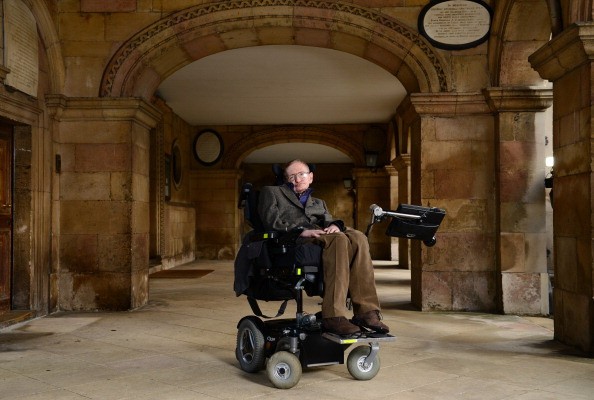Time travel is perhaps the number one science fiction technology people have been waiting for, ever since it was first popularized in the H.G. Wells Novel "The Time Machine " from 1865.

But the physics governing time travel itself are wonky at best. And that's mainly due to the complicated nature of time itself, writes Impact Nottingham. This is why even the most optimistic futurists aren't confident that the technology will ever be invented.
Or can it? In this article, you'll learn about the basics of time travel technology, as well as one man in our current era who believes he has the key to building an actual working time machine.
Time Travel 101
Let's start with this very bold proclamation: time travel is possible. But there are certain conditions.
Albert Einstein's General Theory of Relativity posits the thought that time is relative, and it can be altered by the right factors. But the only condition is that you can only travel forwards in time, and never to the past.

One of the hallmarks of the Theory of Relativity is time dilation. The basic premise is as follows: the faster you move, the slower time passes for you.
Approaching the speed of light in something like a warp drive, for instance, could mean that while you think only minutes have passed for you, hours have already passed on Earth. You would have also aged slower relative to somebody on Earth.
Based on this principle, we actually already have time travellers: the astronauts on the International Space Station.
That's because clocks on the ISS have been proven to tick slower than clocks on Earth, effectively saying that ISS astronauts are traveling 0.007 seconds into the future every six months, according to Planetary-Science.org.

Why Can't We Travel To The Past?
So time travel into the future is theoretically possible. But why not the past?
According to the late great physicist Stephen Hawking, the best evidence we have against going back in time is because "we haven't been invaded" by a bunch of time travel tourists from the future. This has been published in his book "Black Holes And Baby Universes" in 1994, writes Space.com.

Going back to the past in a time machine is impossible due to very complicated physics. But this is the simplest possible answer: the math isn't right, writes Live Science.
Astrophysicist Charles Liu says that you can only go forwards and backwards within the three basic dimensions: width, breadth, and height. But with time (or more accurately, space-time), which is considered four-dimensional, you can only move forward.
Anything contradicting the math to allow time travel would literally counteract the accepted laws of physics, and therefore make it scientifically impossible.
Building A Real-Life Time Machine
There is one man out there who could be the only person with the secret to build an actual, working time machine.
His name is Professor Ron Mallett. In a feature by the BBC, Mallett's work was included in a look at the "most promising ideas" for making time travel possible. And his reason for wanting to go back in time is deeply personal: he wants to save his father's life.
Prof. Mallett's father died at the very young age of 33 after suffering a heart attack. The soon-to-be scientist was only 11 at the time. As a young boy, Ron Mallett was devastated, and eventually dedicated his life to figure out how to make time travel possible.
Mallett's ideas also hinge on Einstein's preeminent theory. His time machine would allow backwards time travel by basically twisting space time into a loop. This, according to Mallett's calculations, will allow something--or someone--to go from the future to the past, and then back to the future, writes CNN.
He plans to twist space time using a set of specially designed lasers, which he says would produce a circulating beam of light. The beams of light, according to Mallett, could theoretically produce a powerful-enough gravitational field to allow backwards and forwards time travel.
Time Travel Is Still A Ways Off
Until the world's most brilliant minds find a way to circumvent the limitations, time travel technology will still be far off.
There is, however, one thing certain: fictional tech like warp drives, lightsabers, or self-aware robots may come and go, but they'll likely never be as iconic as a time machine.
This article is owned by Tech Times
Written by RJ Pierce
ⓒ 2025 TECHTIMES.com All rights reserved. Do not reproduce without permission.




